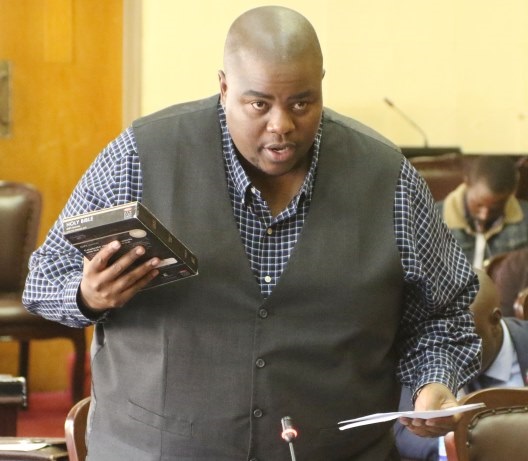SUPREME Court judges say the Zimbabwe Power Company (ZPC)’s appeal against a High Court ruling reinstating businessman Wicknel Chivayo’s controversial Gwanda solar project was weak as the company failed to give satisfactory evidence.
This comes after Chivayo and his company Intratrek Zimbabwe (PVT) LTD won the Supreme Court appeal that its contract with the ZPC to construct the solar project was valid.
In its full judgement, the Supreme Court Justice Lavender Makoni sitting with Justices Joseph Musakwa and George Chiweshe unanimously concurred that Chivayo outwitted ZPC by providing concrete evidence.
“Despite (ZPC lawyer Daniel) Tivada’s spirited efforts, the appellant’s case is weak in three cardinal respects. Firstly, … Chivayo gave detailed factual evidence in support of the respondent’s case.
“On the other hand, (ZPC’s renewable projects manager Cleophas) Fambi, who gave evidence on behalf of the appellant, was literally at sea as he admitted that he had no useful information regarding the issues before the court.
“He referred all material issues to the respondent’s CEO who was, surprisingly, not called to give evidence,” the judges ruled. They said Chivayo’s evidence was not disputed. “Secondly, the court a quo made a finding of credibility in favour of … Chivayo. To all intents and purposes therefore the court a quo accepted the veracity of the evidence as given by… Chivayo and rejected any evidence to the contrary.
“It is trite that an appeal court will not lightly interfere with the findings of credibility of a trial court. Thirdly, following from the above, the court a quo made findings of fact in favour of the respondent. There is no basis to interfere with those findings,” the judges added.
They added that the termination did not meet the requirements of the termination clause of the contract.
“We are satisfied that the court a quo properly held that the contract between the parties was valid and extant and that same was properly amended by the Addendum to it which extended the period within which the conditions precedent should be fulfilled.
It correctly 49 Judgment No. SC 127/23 Civil Appeal No. SC 38/23 found that its purported termination by the appellant was of no legal force or effect as such termination did not meet the requirements of the termination clause of the contract.
“The court a quo exercised its discretion judiciously in ordering specific performance of the contract, having found that the respondent was willing and able to source funding for the project. In any event, no meaningful evidence was presented by the witness led by the appellant.
“The witness was unable to lead satisfactory evidence with regards the appellant’s counter claim in the sum of US $ 3 million. The court a quo correctly found that the counter claim had not been proved and proceeded to dismiss it. In the circumstances the appeal stands to fail. Costs shall follow the cause.
“Accordingly, it is ordered that: The appeal be and is hereby dismissed. The appellant shall pay the costs of suit.” Speaking after the Supreme Court handed down the judgment last week, lawyer Lewis Uriri, who was representing.


